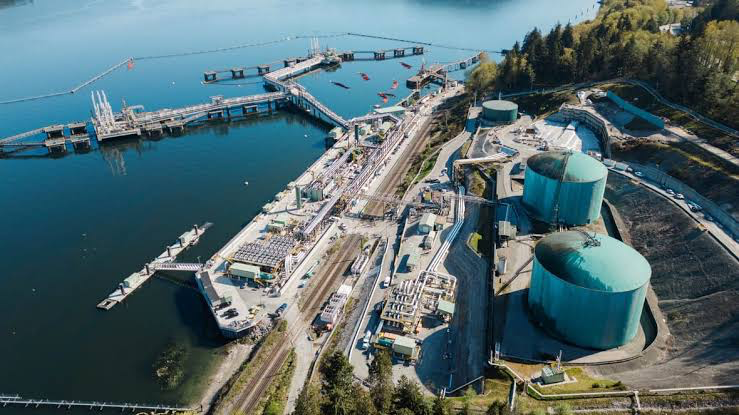Canada’s long-delayed Trans Mountain pipeline expansion project (TMX) has finally begun commercial operations, marking a significant milestone for the country’s oil industry. The project is expected to transform access to global markets for Canadian oil producers.
Boost for Oil Exports and National Economy
For over a decade, pipeline limitations have forced Canadian oil producers to sell their products at a discount. TMX, with its nearly tripled capacity, will now allow 890,000 barrels of crude oil per day to flow from Alberta’s landlocked fields to the Pacific Coast for export. This is expected to boost Canadian crude prices, increase the national GDP, and open doors to new oil markets in Asia.
The expanded pipeline was first proposed in 2012. However, it faced numerous hurdles. Regulatory delays and soaring costs, which rose to more than four times the initial budget, plagued the project. The Canadian government even had to intervene by purchasing the pipeline in 2018 to ensure its completion.
Environmental Concerns Remain
Environmental groups continue to voice concerns about the potential for leaks, particularly in ecologically sensitive areas. They also argue that the project promotes the expansion of carbon-intensive oil sands crude, hindering Canada’s efforts to combat climate change.
The federal government is seeking to sell at least part of the pipeline to Indigenous groups but is likely to face financial losses on its investment. While the project is a relief for the oil industry and may bring additional revenue to the government, the debate over environmental impact continues.
Source: Reuters



